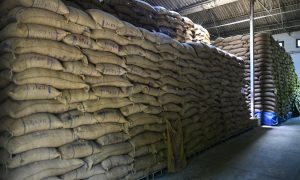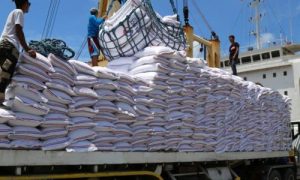After Punjab, Haryana may ban harmful pesticides, help Indian Basmati rice clear strict overseas standards

Haryana plans to ban 11 hazardous pesticides on basmati rice to boost exports and meet global food safety standards. Similar to Punjab, the 60–90 day ban aims to reduce pesticide residue that led to rejection in EU, US, and Gulf markets. Exporters seek strict enforcement to restore India’s basmati reputation and regain lost market share.
New Delhi: Haryana is gearing up to ban hazardous pesticides in Basmati rice in an attempt to make it easier to export the grain to developed and other markets with high food safety standards.
Neighbouring Punjab—like Haryana a major agricultural state—has already enforced such a ban in order to meet what is known as the International Maximum Residue Limits (MRLs).
These two states account for nearly 70%-75% of India’s basmati exports of 6 mllion tonnes (in FY25). MRL is the highest concentration of a pesticide or veterinary drug residue legally allowed in food or animal feed, established to ensure food safety based on Good Agricultural Practices (GAP).
The Union government has also imposed a ban on four highly hazardous pesticides.
Basmati rice exports from India have been facing repeated rejection by the European Union, US, Japan, Oman, Kuwait, Lebanon, and UAE, owing to pesticide residues exceeding the prescribed MRLs of the importing country,according to Haryana Rice Exporters Association.
This has led to a substantial loss of export business, reputational damage, and a decline in India’s market share, much of which has shifted to competitors like Pakistan.
Replicating Punjab initiative
The Haryana move seeks to replicate initiatives taken in Punjab.
“We have banned the sale, distribution, and use of 11 insecticides on basmati rice crops for a 60-day period, starting 1 August to 30 September, to address concerns about pesticide residues exceeding permissible limits,’ said a senior official in Punjab agriculture Department.
The banned insecticides are Acephate, Buprofezin, Chlorpyriphos, Propiconazole, Thiamethoxam, Profenofos, Carbendazim, Tricyclazole, Tebuconazole, Carbofuran and Imidacloprid.
The Punjab Rice Millers and Exporters Association reported that tests conducted by them previously had shown these pesticides at levels that were much above the MRL values for basmati.
“So, our association requested for a ban on these agrochemicals to save the heritage basmati produce of Punjab, and to ensure hassle free export of basmati rice to other countries” said an exporter on the condition of anonymity.
Taking a cue from Punjab, Haryana basmati exporters also approached the state government seeking a ban.
“We have sought immediate intervention of the state government on prohibition on sale, stock, distribution and use of certain pesticides on basmati crop in Haryana to safeguard the integrity and global reputation of Basmati rice cultivated in the state,” said Sushil Jain, President, Haryana Rice Exporters Association.
Uncurbed availability
According to exporters, despite continued efforts by exporters associations—through farmer awareness programmes and advisory dissemination—certain pesticides remained widely available and in use, undermining all efforts.
“In light of the upcoming paddy cultivation season and the urgent need to protect the heritage, and export viability of basmati rice, we have appealed the state government to impose a prohibition for a period of at least 90 days (during the paddy crop season) 15 July on the sale, stock, distribution and use of the certain pesticides,’ Jain added.
The pesticides for which a ban has been sought are the same as in Punjab.
A senior official in Department of Agriculture and Farmers Welfare ministry in Haryana said the final decision related to a ban will be taken in consultation with stakeholders and other relevant concerned officials.
Exporters suggested that the prohibition should be strictly implemented at the field level, and that a monitoring and complaint mechanism should be established to prevent the illegal sale and use of these pesticides.
“We believe that implementing a pesticide prohibition in Haryana, in line with this vision, will go a long way in promoting pesticide-compliant basmati rice and reviving India’s lost standing in some foreign markets,” said Vijay Setia, advisor, Haryana Rice Exporters Association.
To Read more about Rice News continue reading Agriinsite.com
Source : Live Mint















